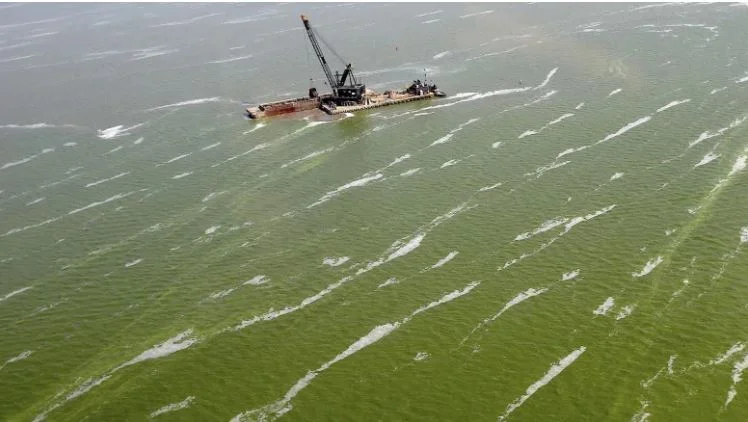While they say they realize building shoreline resilience is important, Tiny councillors first want to chat with authorities involved with Great Lakes' water levels. Coun. Tony Mintoff said he appreciated the value of developing resilience, but he also believed a multi-pronged approach needs to be taken. “While we're looking at opportunities to create resiliency for those property owners, I think it's also responsible that we put our foot on the accelerator in terms of the governing bodies,” he said at a recent committee of the whole meeting.
Stopping algae blooms may start on farmlands
A handful of Chatham farms might hold the answer to reducing toxic algae blooms in the Great Lakes. These farms are collecting and analyzing their agricultural runoff, in hope of reducing the amount of phosphorus entering the waterways. It's part of a project, started by two organizations in Spring 2016, which aims to come up with a strategy to deal with toxic algae blooms. Out of that idea for the project — between the Ontario Federation of Agriculture and the Great Lakes and St. Lawrence Cities Initiative — came the Thames River Phosphorus Reduction Collaborative.



